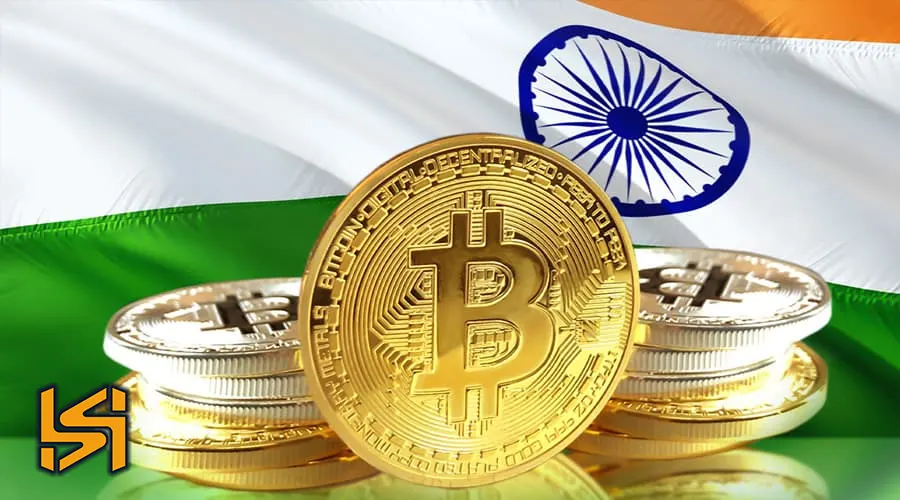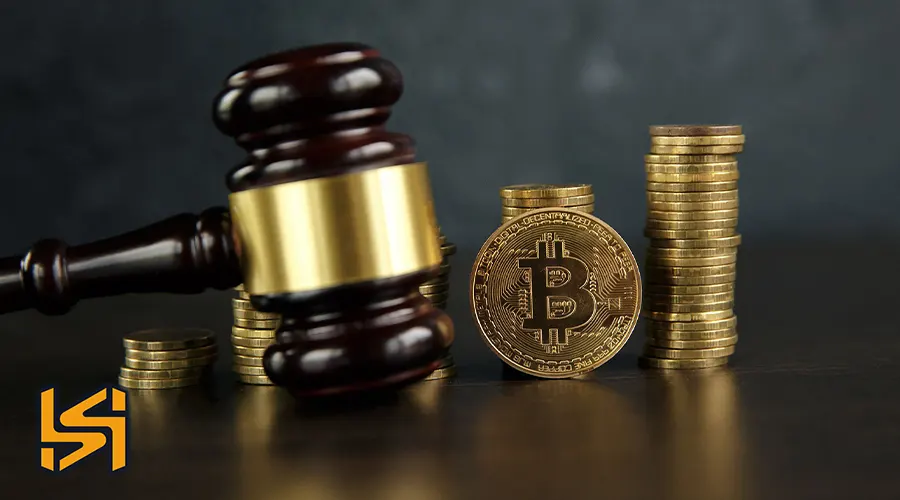- Overview: The Best Crypto Exchanges in India for 2024
- Top 5 Indian Crypto Exchanges: A Comprehensive Comparison
- Comparison of Top 5 Indian Crypto Exchanges
- How to Choose the Best Cryptocurrency Exchange in India
- Crypto Exchange Fees in India: What You Need to Know
- Safety First: Secure Cryptocurrency Exchanges in India
- Understanding Cryptocurrency Regulations in India for 2024
- The Bottom Line
- FAQ
Top 5 Crypto Exchanges in India | As the cradle of cryptocurrency expands, investors in India are increasingly taking more action to find ways through this dynamic market. At a time of growing interest in digital assets, choosing the right exchange has become crucial for seasoned traders or fresh on-the-block beginners. As is the purpose of these comprehensive guides, here is a look at the top crypto exchanges in India for 2024, their features, security measures, and user experiences. Whether aiming to diversify your portfolio or making your first foray into cryptocurrency trading, knowing the best platforms could significantly influence your investment success.
In this article, we will discuss the top crypto exchanges in India, where each differs in the benefits and services provided. From user-friendly interfaces to multilayer security protocols, all these exchanges are different types of tools that are targeted at the specific needs of diverse trading projects. We compare the strong points with the weaknesses, trying to help you learn something new and make better decisions toward improving your cryptocurrency journey next year.
Overview: The Best Crypto Exchanges in India for 2024
As the Indian cryptocurrency market grows, here are a few factors you need to consider when choosing the best crypto exchange in 2024. A good crypto exchange must have strong security for its users, ensuring that their assets are safeguarded no matter what. To provide advanced security protocols, those might include easy implementation—two factorizations, encryption, and cold storage means, which are common among the best platforms, must be implemented so that users can go on with trading without any worries.
The other feature that characterizes the best exchanges is user experience. An intuitive interface and easy navigation of platforms create a friendly trading ecosystem for beginners and experienced traders. Other features supporting good user experience include frictionless account management, responsible customer support, and sound educational material, including information about markets. Additionally, the availability of mobile apps and practical trading tools supports added convenience and accessibility for users.

Without a diversified range of cryptocurrencies, it will not be easy to seek out various investment opportunities. Top exchanges provide a wide choice of digital assets- from well-known cryptocurrencies to emerging altcoins- enabling a trader to diversify a portfolio and apply different trading strategies. High liquidity and substantial trading volumes are also critical, facilitating smoother transactions with improved price execution.
Last but not least, other essential factors are regulatory compliance and the transparency of its fee structure when selecting the best crypto exchange. Knowing that the exchange you are considering is following local regulatory rules and industry standards gives an added sense of reassurance regarding the legitimacy of the service and can be counted upon. Transparent and competitive fees on services for trading, deposits, and withdrawals of assets will help customers manage proper costs and maximize their investment potential. Assessing these factors will direct the investor toward a platform best suited to their needs and guarantees safe and efficient trading.
Read More: Top Cryptocurrency Exchanges with the Lowest Fees
Top 5 Indian Crypto Exchanges: A Comprehensive Comparison
-
WazirX
WazirX is one of the country’s largest and most influential virtual currency exchangers. Invented in 2018, the company’s head office in Mumbai offers many cryptocurrencies for trading. Acquired by Binance in 2019, WazirX shares Binance’s global platform, hence increasing its liquidity and trading pairs.
Some of the Key Features:
- Pleasing to use for new and advanced traders
- Support for a variety of cryptocurrency variants: leading and altcoins
- Staking, along with futures trading.
- Also, international trades via Binance are included.
Pros:
- High liquidity, large trade volume.
- Competitive fees for trading.
- Great mobile application and web application.
Cons:
- Customer support ran off the rails.
- Regulatory uncertainty is making it quite unpredictable whether or not it will operate.
-
CoinSwitch Kuber
CoinSwitch Kuber is a crypto end-to-end exchange aggregator based in Bangalore. Launched in 2017, the platform has onboarded different varieties of cryptocurrencies, and the prices are aggregated from leading exchanges to ensure that users get the best rate for any transaction.
The features of CoinSwitch Kuber:
- aggregation of prices across different stock exchanges
- large number of cryptocurrencies that can be exchanged or traded
- and some extensive features like the one enabling recurring investments.
Pros:
- It has a very friendly interface, hence making it suitable for newbies.
- Aggregation of rates makes it very competitive.
- A very seamless user experience.
Cons:
- Only a few advanced trading features.
- Spreads are slightly wider than on some other exchanges.
-
ZebPay
ZebPay is a cryptocurrency exchange founded in 2014 and one of India’s oldest crypto exchanges. Though its original home base was India, this exchange operates out of Singapore. It has been prominent for security and regulatory compliance reasons.
Key Features:
- A wide range of cryptocurrencies is available for trading.
- Emphasis on robust security measures.
- Additional features like staking and trading.
Pros:
- Strong security protocols.
- Established reputation in the crypto industry.
- High liquidity and trading volume.
Cons:
- The user interface may not be as intuitive as newer platforms.
- Fees can be higher compared to other exchanges.
-
Unocoin
Unocoin is a Bangalore-based exchange founded in 2017. The firm is mainly focused on Bitcoin, guiding users into easy investment through features that offer systematic investment plans and safe options for storing Bitcoins. However, it now supports more cryptocurrencies.
Key Features:
- Specializes in Bitcoin with unique investment plans.
- Provides tools for systematic investment and secure storage.
- User education focus.
Pros:
- Tailored specifically for Bitcoin investors.
- Easy SIP investments.
- Emphasis on user education and support.
Cons:
- Fewer advanced trading features.
-
Bitbns
Bitbns is among the most renowned crypto exchanges in India. It operates with hundreds of trading digital assets, including Bitcoin and several altcoins. The interface is highly user-friendly and suitable for new and active investors because of its unique investment possibilities.
Key Features:
- It supports major cryptocurrencies and several altcoins.
- It pays interest on digital holdings.
- It gives a feature to buy cryptocurrency periodically.
- Convenience of navigation for traders at any level.
- Two-factor authentication, storage on cold wallets.
Pros:
- Extensive Cryptocurrency Selection.
- Innovative Investment Options.
- Easy-to-Use Platform.
Cons:
- Limited Advanced Trading Tools.
- Occasional Customer Support Delays.
Comparison of Top 5 Indian Crypto Exchanges
User Interface and Experience:
WazirX and CoinSwitch Kuber are known to achieve more amicable user interaction, particularly with beginners regarding CoinSwitch Kuber.
Regarding the interface, ZebPay feels more traditional and less intuitive to use than others.
WazirX and CoinSwitch Kuber are the best options if you’re looking for the best interface.Range of Cryptocurrencies:
Range of Cryptocurrencies:
WazirX and CoinSwitch Kuber offer a broad range of cryptocurrencies, catering to users interested in various digital assets.
ZebPay also supports many cryptocurrencies, but its user interface and fee structure may be less competitive.
Security:
ZebPay is noted for its strong security measures and long-standing reputation.
WazirX and CoinSwitch Kuber also prioritize security, but there have been concerns about customer support and regulatory issues. Unocoin offers secure storage solutions.
Fees and Charges:
WazirX and Bitbns were known for competitive fees.
CoinSwitch Kuber may have higher spreads due to its price aggregation model.
ZebPay generally has higher fees than other exchanges.
Advanced Features:
WazirX offers advanced trading options such as futures trading.
CoinSwitch Kuber is more focused on simplicity and lacks advanced trading features.
ZebPay and Bitbns provide some advanced trading options, such as future tools in Bitbns (Testnet, of course).
Long story short, the exchange must be based on your needs: wide availability of cryptocurrencies, advanced trading features, or an easy interface. WazirX and CoinSwitch Kuber remain top choices for broad access and ease of use. ZebPay is a good option, emphasizing security, while Unocoin can be a good app for somebody dedicated to Bitcoin investing.
How to Choose the Best Cryptocurrency Exchange in India
Therefore, the best cryptocurrency exchange in India requires a number of factors to be put into play so you can make a choice that befits your trade needs, security approach, and financial intentions. Read on to find out in more detail and be in a position to make a well-informed decision:
-
Regulatory Compliance and Reputation
- Regulatory Status: Confirm the exchange’s operating status within the regulations of the respective location and determine its definite legal standing. Check for any recent issues or heads-ups on the regulatory front.
- Reputation: Approach the exchange’s history and general reputation. Observe reviews and feedback left by other users about its reliability and trustworthiness.
-
Safety Measures
- Security Protocols: The Exchange should have appropriate security protocols in place, like two-factor authentication (2FA), encryption, and regular audits toward better security.
- Cold Storage: Ensure the website follows cold storage for most funds to safeguard against hacking.
-
Range of Cryptocurrencies
- Variety of Assets: If one wishes to operate or invest in various digital assets, one will undoubtedly want to choose an exchange that deals in multiple cryptocurrencies.
- Liquidity: High liquidity means buying or selling cryptocurrencies will take little time and will not significantly affect the market price.
-
User Experience and Interface
- Ease of Use: The platform should be easy and straightforward to use unless you are an advanced user. The navigation should be clear and intuitive.
- Mobile and Web Platforms: Does the exchange offer trading on mobile apps and web platforms? How stable and reliable are the trading platforms?
-
Fees and Charges
- Trading Fees: Compare the trading fees on the various exchanges available. Fees may be charged per trade, as a percentage of the transaction, or through spread.
- Deposit and Withdrawal Fees: Watch out for other fees charged in deposits or withdrawals. Some other fees you may notice are bank transfer fees, card payment fees, and fees on deposits or withdrawals of cryptos.
-
Customer Support
- Responsibility: The exchange must actively support its customers. Investigate those with increased contact sources like live chat, email, and phone support.
- Support Quality: Investigate the quality of operation for customer support through reviews left by users and direct interaction, trying to reach them to observe how fast and efficiently they would respond.
-
Deposit and Withdrawal Methods
- Available Methods: See what deposit and withdrawal methods are available. These range from bank transfers and credit/debit card options to other channels of payment.
- Processing Times: Look at the processing times for deposits and withdrawals to see if they meet your requirements.
-
Trading Features and Tools
- Order Types: Select an exchange which provides order types such as market, limit, stop-loss that suits your trading.
- Advanced Tools: It may be useful for experienced traders to work on a platform that uses advanced trading tools, charts, and analytics.
-
Compliance with KYC/AML Regulations
- Verification Requirements: Most exchanges mandate some degree of either Know Your Customer (KYC) or Anti-Money Laundering (AML) compliance. Make sure you’re comfortable with the level of those verifications.
- Privacy Policy: Review the exchange’s privacy policy to learn how your personal information is handled and protected.
-
User Reviews and Feedback
- Community Feedback: Get on forums, social media, and review sites to gather insights on other users’ experience with the platform.
- Problem Resolution: Go through the reviews on how the exchange deals with the problems regarding transaction disputes or other account-related issues.
After considering these factors, one can choose the exchange that suits their needs and works well to offer an easy and safe way of trading.
Crypto Exchange Fees in India: What You Need to Know
Understanding how the different crypto exchanges are structured regarding fees is essential, given that the cryptocurrency market is gathering in India. This is critical because these fees are outrighted to the spread or slippages that affect your profitability. Here is a close look at the fee structure across the leading crypto exchanges in India and what you need to know to arrive at better decisions:
-
Crypto Exchange Fees Types
Trading Fees:
Whether buying or selling, a cryptocurrency, in general, would mean that something would have to be paid and this is called ‘Trading Fees’. They usually come in two sizes:
- Maker Fees — This would apply to placing a limit order that shall add liquidity to an order book. Makers are normally charged less because they bring liquidity into the markets.
- Taker Fees Incurred when a trader’s created order is matched immediately against another order already present in the book, thus removing liquidity. In most cases, the taker would be paying a fee higher than the maker.
Deposit Fees:
A few referrals charge a deposit into the account. This may vary depending on the type of deposit the customer uses, which can range from bank transfers to credit/debit cards.
Withdrawal Fees:
This is the amount taken from the money withdrawn from the exchange to a bank account or a crypto wallet. The amounts would differ depending on the type of yield—further, the cryptocurrency in action.
Conversion Fees:
Exchanges supporting multiple fiat currencies often subject customers to conversion fees whenever they deposit or withdraw funds in any other currency than their base account currency.
Network Fees:
Cryptocurrency transfer from one wallet to another is subject to fees set by the blockchain network. The exchange has absolutely no control over such fees, as they are relevant to the execution of transactions on the blockchain.
-
Fee Structures of Major Indian Crypto Exchanges
- WazirX:
- Trading Fees: WazirX offers a tiered fee structure. The standard trading fee is 0.2% for both makers and takers. Users can lower fees by holding and using WRX tokens, WazirX’s native token.
- Deposit Fees: Typically free for bank transfers. Credit/debit card deposits may incur additional fees.
- Withdrawal Fees: Variable depending on the withdrawal method and the cryptocurrency.
- CoinSwitch Kuber:
- Trading Fees: CoinSwitch Kuber uses a spread-based model rather than fixed trading fees. This means the cost is embedded in the buy/sell price.
- Deposit Fees: Generally free, but fees might apply for specific payment methods.
- Withdrawal Fees: Depends on the payment method and currency.
- ZebPay:
- Trading Fees: ZebPay has a maker-taker fee structure with rates starting at 0.1% for makers and 0.25% for takers. Fees can decrease based on trading volume.
- Deposit Fees: Usually free for bank transfers, but fees may apply for other deposit methods.
- Withdrawal Fees: Charges apply for both fiat and cryptocurrency withdrawals, varying by method and currency.
- Unocoin:
- Trading Fees: Unocoin primarily focuses on Bitcoin and may have different fee structures compared to multi-crypto platforms. It generally offers competitive rates for Bitcoin transactions.
- Deposit Fees: Typically, bank transfers are free.
- Withdrawal Fees: Fees may apply based on the method of withdrawal.
- Bitbns:
- Trading Fees: Bitbns charges a flat trading fee of 0.25% per transaction, applicable to both buy and sell orders. This fee structure is competitive within the Indian crypto market.
- Deposit Fees: Deposits made via bank transfers are generally free, but users should check for any specific charges associated with different deposit methods. Cryptocurrency deposits are usually free of charge.
- Withdrawal Fees: Withdrawal fees vary depending on the type of asset and method used. For INR withdrawals, Bitbns charges a nominal fee, while crypto withdrawals may incur network fees based on the blockchain.
-
How to Manage and Minimize Fees
Choose the Right Exchange:
Compare fee structures according to your needs on various exchanges. Going ahead, you will find a better alternative with lower fees to reduce costs if you trade heavily.
Use Native Tokens:
Most exchanges offer different fee discounts if one owns some of their native tokens. WazirX, for example, offers fee cuts to WRX token holders.
Optimize Trading Strategy:
If you’re a heavy trader, utilize those exchanges which come with less trading or maker fees. The limit orders will make it possible to obtain lower maker fees instead of market orders.
Deposit and Withdrawal Fee:
Try to deposit and withdraw via methods that offer minimal fees. Usually, bank transfers are low-cost compared to credit/debit cards.
Keep a Tab on the Hidden Charges:
Also, beware of the spread between buy and sell prices, as this adds up in your costs quite significantly at times, and you would be better off trading with those offering tighter spreads.
Regular Review of Fee Structures:
The fee structures do tend to change in nature; thus, one should be abreast of changes in their exchange of choice concerning its policy on fees.
Understanding and managing the crypto exchange fees is crucial to optimize your trading strategy for maximum return. Comparing the fee structure, selecting the appropriate exchange, and following cost-saving strategies are ways of minimizing or reducing the impacts that may be caused by fees while trading. Furthermore, stay informed about changes in fees and select a platform that best meets your goals relative to trading and financial planning.
The world of cryptocurrency trading demands attention to detail, and keeping abreast of how the fees can affect your trade contributes to making better financial decisions in this dynamic, ever-changing crypto market.
Safety First: Secure Cryptocurrency Exchanges in India
In this modern age of fast-moving cryptocurrency trading, security for your digital assets is a significant concern. As cyber threats and fraud increase, picking a secure cryptocurrency exchange protects your investments. The following sections discuss those factors to consider when evaluating the safety of cryptocurrency exchanges in India, paving the way for you to carry out tradition confidently.
-
Key Security Features to Look For
1.1. Two-Factor Authentication (2FA)
Two-factor authentication is one of the methods you can use to add an extra layer of security to your account. It is a security device at a second level, whereby you share a piece of information besides your password that identifies and can vouch for your identity. The common ones are codes from a message to your phone, or those generated by an authentication app. Using 2FA minimizes the chances of unauthorized access.
1.2. Encryption
Encryption helps safeguard personal data and transaction details from unauthorized access. A secure exchange will utilize advanced encryption protocols to protect sensitive data at both rest and in-transit regimes. In other words, your data is scrambled into an unreadable format that is only readable by authorized parties.
1.3 Cold Storage
Cold storage entails keeping most of the cryptocurrencies in offline wallets not connected to the internet. This strategy secures the assets from being hacked or stolen through cyber activities. A secure exchange is identified by its use of cold storage to prevent exposure to internet threats.
1.4. Multi-Signature Wallets
Multi-signature wallets require multiple private keys to approve a transaction, hence making it much more secure through distributed control. Even if one key is compromised without the level of multiple keys, unauthorized transactions will not go through. This is just another way that your assets gain added protection.
1.5. Regular Security Audits
Audits conducted by internal or third-party auditors scrutinize and enhance the exchange’s security features. Regular audits ensure that vulnerabilities are discovered and that the security practices applied are updated. Look for exchanges that undergo periodic security testing.
1.6. Insurance Policies
Some exchanges will also sell insurance policies to provide compensatory coverage for losses arising out of theft or hacking. Though not all exchanges provide any insurance, if some do, that adds greater confidence on the part of the customer. Insurance can be purchased to help safeguard your assets in case there is a security breach.
1.7. Compliant with the Law
Moreover, it ensures that the regulatory requirements of Know Your Customer and Anti-Money Laundering are properly met to prevent fraud and ensure transparency in any deal’s transaction. A secure exchange will follow this standard to verify the user’s identity and check for suspicious activity that may create fraudulent acts.
1.8. User Education
Exchanges that educate their users on the best practices for trading securely and how to protect their accounts do so by providing guides, tutorials, or even alerts of common security threats. The more informed you are regarding best practices, the higher your potential for security will be.
-
Tips for Enhancing Your Security
2.1. Two Factor Authentication
Enable 2FA in any of your exchange accounts. An additional protective layer, this will guarantee that even if a password leak happens, your account isn’t compromised.
2.2. Strong Password, No Reuse
Use a strong and unique password to secure your exchange accounts, never a duplicate, and never use the same password on multiple sites. Normally, a strong password includes a mix of letters, numbers, and special characters.
2.3. Up-to-Date Software
Keep your browser, operating system, and security software up to date to defend against known vulnerabilities. It is also necessary to bug-fix and update security patches to prevent emerging threats.
2.4. Beware of Phishing Schemes
Phishing scams occur when thieves try to trick you into giving out your personal information while pretending to be someone else. Be cautious of emails, instant messenger messages, or phone calls requiring sensitive information. Before providing information, it is better to authenticate the request.
2.5. Monitor Your Accounts Regularly
Monitor your account activity frequently and review your transaction history often for any unusual transactions. Quick identification of suspicious activity may prevent potential loss.
2.6. Use Secure Networks
Choose secure, trusted networks when accessing your exchange account. Abstain from making sensitive transactions using public Wi-Fi—these networks are possibly much more prone to cyber-attacks.
2.7. Enable Withdrawal Whitelists
In fact, some exchanges allow for the use of withdrawal whitelists, where any withdrawals must occur only to addresses that are pre-defined. This is just an added measure that would save you from unauthorized withdrawal in case something goes wrong with your account.
2.8. Learn from Security Best Practices
Understand the topical security threats and dexterity of the security industry’s best practices for securing your digital assets. Continuous learning about cybersecurity best practices will ensure that you know how to keep your investments safe.
This way, you can secure your investment in cryptocurrency by considering the security attributes and practices of the exchange. Emphasize those exchanges demonstrating the best security practices and features, such as two-factor administration, cold storage, and regular audits, to protect your assets. Couple this with good security hygiene: strong passwords are a must, and know how to spot a phishing email. By placing security at the center of your cryptocurrency trading activities, you set yourself up to confidently trade securely in this new digital frontier.
Understanding Cryptocurrency Regulations in India for 2024
Investors, traders, and participants of the industry in India need to understand the current regulatory landscape and be updated about recent developments in cryptocurrency in India. Changes in global trends, technology advancement, and domestic policy imperatives have made the regulatory environment regarding cryptocurrencies in the country fluid since 2024. The following is an overview of the prevailing and expected regulatory regime regarding cryptocurrencies in India.
-
Prevailing Regulatory Environment
1.1. Legal Status and Classification
By 2024, the cryptocurrencies would not be considered legal tenders within India. In other words, the Government of India and the Reserve Bank of India do not recognize or declare ‘cryptocurrency’ as legal currency, or even a financial asset. Cryptocurrencies are seen only as ‘digital assets’, and thus their use is actually under the general law on financial and anti-money laundering laws.
1.2. Regulatory Bodies
- About Authorities’ Stand: The RBI issues various circulars on the use of cryptocurrencies from time to time. It has been rather fastidious in focusing on associated risks with digital assets. Back in 2018, the RBI imposed a banking ban on cryptocurrency transactions in the country. The ban was later overturned by the Supreme Court in 2020.
- Securities and Exchange Board of India: Similarly, the SEBI regulates the securities markets and is one of the discussion points when considering how cryptocurrencies and related activities may be integrated into existing financial legislation.
- Ministry of Finance: The Ministry of Finance logically plays an important role in implementing policies and regulations concerning digital assets on issues such as taxation and anti-money laundering.
1.3. Taxation
- IT: Cryptocurrencies will be taxed under the Income Tax Act. Profit from the trade of any cryptocurrency will be treated either as a capital gain or a business income, depending on the nature and frequency of the transactions.
- Goods and Services Tax: The GST Council has been deliberating whether a cryptocurrency transaction would invoke GST. In 2024, the council did not issue directions, so this GST levy on cryptocurrency services and transactions is also debatable.
1.4. Anti-Money Laundering and Know Your Customer Requirements
Exchanges and business platforms should, therefore, subscribe to AML and KYC. For instance, subscribing to verifying who the customer is and monitoring their transactions could halt possible money laundering and other illegal activities.

-
Recent Developments
2.1. Propose the Cryptocurrency Regulation Bill
The Indian government has been working on a bill to regulate Cryptocurrency- a kind of omnibus Cryptocurrency Regulation Bill that shall essentially bring everything relating to digital assets in perspective. The cornerstones of this bill will be:
- Digital Assets: Regulations on transparent issuance, trading, and handling of cryptocurrencies.
- CBDC: Concept and framework for the potential digital rupee to be issued by the RBI.
- Taxation and Reporting: Explain the tax levies on such dealings involving cryptocurrencies, thereby bringing the onus of reporting such activities on exchanges.
2.2. Digital Rupee Initiative
The RBI, the first central bank to discuss the CBDC, has been considering an altcoin for private cryptos. The digital rupee is supposed to be a government-issued currency to coexist with its present currency and, specifically, to make payments more efficient.
2.3. Regulatory Sandbox
On the issue of cryptocurrencies, the Indian government has introduced a regulatory sandbox for fintech innovations. This sandbox allows firms to test new products and technologies in a controlled environment, which can provide valuable insights into regulatory impacts and consumer protection.
-
Compliance and Best Practices
3.1. To Investors and Traders:
- maTax Implications – keep all the cryptocurrency transactions and seek expertise from tax professionals to make sure all income tax compliances and GST are met.
- AML/KYC: For all regulated exchanges, use them so as not to fall into legal issues.
- Stay Informed: Pay attention to news related to new regulatory changes and adjust your investment strategy accordingly.
3.2. For Exchanges and Businesses:
- Comply with Regulations: Implement all existing AML, KYC, and tax regulations. Build an extensive security framework to safeguard users’ data and assets.
- Regulatory Outreach: Engage with regulators and be very active in industry forums with the purpose of contributing to and learning about imminent regulatory changes.
- User Education: Educate users on their rights and responsibilities in light of the current standing of regulations.
-
Future Outlook
4.1. Changing Regulations
As new challenges and opportunities emerge, the government and financial authorities will likely continue upgrading the regulatory environment for cryptocurrencies in India. The key focus might involve full compliance with the rules, clarification of taxation policies, and enhanced consumer protection measures.
4.2. Growth of Institutional Participation
Increased clarity in regulations may encourage the involvement of more institutional investors and other financial institutions within the sphere of cryptocurrency. These may be positive consequences, as increased market stability and integration with more traditional financial systems could be achieved.
4.3. Global Alignment
The Indian approach to regulating this will likely result in convergence with global standards and best practices, shaping international regulatory developments within the digital assets arena.
Understanding the regulatory environment for cryptocurrencies in India in 2024 entails understanding the prevailing legal status, recent developments, and expected changes. Navigating the shifting landscape requires knowledge of prevailing regulations, tax burdens, and participation in active policy debate. Since the regulatory environment will keep changing, investors and businesses must be prepared to ensure a secure and compliant entry into the cryptocurrency market.
4. 5. Regulatory Updates & Compliance
In 2024, India’s cryptocurrency landscape continues to evolve amidst a dynamic regulatory environment. The government has imposed a 30% tax on cryptocurrency gains and a 1% Tax Deducted at Source (TDS) on transactions, significantly impacting trading activities. Exchanges such as WazirX and CoinDCX have proactively implemented stringent Know Your Customer (KYC) and Anti-Money Laundering (AML) policies to align with these regulations, ensuring secure and compliant trading experiences for users. Additionally, global platforms like KuCoin have secured registration with India’s Financial Intelligence Unit (FIU), reflecting a trend towards increased regulatory adherence among exchanges operating within the country.
4. 6. Comparison of Fees & Features
To assist readers in making informed decisions, here’s a comparison of key features among leading cryptocurrency exchanges in India:
| Exchange. | Trading Fees | INR Deposit Methods. | Withdrawal Limits. |
| WazirX | 0.10%–0.40% | UPI, Bank Transfer | Varies by method |
| CoinDCX | 0.04%–0.50% | UPI, Debit/Credit Card | Free withdrawals |
| KuCoin | 0.10% | Bank Transfer | Dependent on method |
| CoinSwitch | 0%–0.49% | NEFT, RTGS, IMPS | Free withdrawals |
| ZebPay | 0%–0.50% | IMPS, NEFT, RTGS | Free withdrawals |
Note: Trading fees may vary based on trading volume and specific promotions.
For exchange cryptocurrency at the best rate, visit Flashift website, create a registration-free transaction and take advantage of a secure and speedy experience.
The Bottom Line
In conclusion, regarding the shades of cryptocurrency in India, there are many points one needs to pay careful attention to while selecting the best and most appropriate crypto exchange. The best exchanges in 2024 offer unique features, a competitive fee structure, and strong security measures. An investor needs to ensure comprehensive comparison among all the best exchanges. The particular knowledge of fee structures and keeping safety in focus means securing their assets and gaining the maximum investment potential. Each of the above exchanges has strengths; understanding and aligning them with personal trading preferences is key to a successful crypto experience.
More importantly, with an ever-evolving regulatory landscape in India, compliance with what is legally required is essential. The 2024 regulatory landscape signals that the government of India has taken a more organized approach to securing investors, encouraging the responsible growth of crypto. While selecting a given exchange, one must consider the features and security and how well the platform abides by Indian regulations. This will provide you with profound insight into it; thus, you can confidently make informed decisions and securely navigate the crypto market.
FAQ
- What factors were considered while choosing the best crypto exchanges in India for the year 2024?
Selection was based on security and User Experience, Fee Structure, Customer Support, Variety of Cryptocurrencies, and following regulatory compliance. These parameters will ensure that the selected exchanges offer a seamless, safe experience to their Indian users.
- What are the key differences between the top 5 crypto exchanges in India?
The main differences are in the fee structure, security protocol, user interface, number of available cryptocurrencies, and customer support. Each exchange has strengths that make it worth choosing one to suit your trading needs and preferences.
- How would I know which among the top 5 exchanges is the best fit for me?
Choose the best fit based on your trading objectives, the cryptocurrencies you plan to trade, your experience, and the factors associated with low fees, security, and ease of use. At this stage, you can compare these factors in various top 5 exchanges to decide on one with poise.
- What am I looking for when choosing a cryptocurrency exchange in India?
While choosing a cryptocurrency exchange, one may take into consideration the various factors behind the choice of such a facility: security, fees, user experience, customer support, available cryptocurrencies, and regulation. Additionally, one can see if features such as a mobile app, advanced trading options, and educational resources are offered.
- How important is the use of a regulated exchange in India?
Yes, using a regulated exchange is very important in keeping your funds safe and staying within the ambit of Indian law. Regulated exchanges will have better security measures and also offer protection if there is any fraud or hacking incident.
- How can I minimize the fees when using a crypto exchange in India?
To minimize fees, choose exchanges with more competitive fee structures. Use limit orders rather than taking order types to avoid the taker fee. If an exchange’s native token is available for discounts, consider holding it. Second, compare the different withdrawal fees and make sure you select the most cost-effective methods to fund and withdraw your account.
- How can I secure my funds on a crypto exchange?
Security features of good exchanges, enable all available security options like 2FA, store large amounts of cryptocurrency in a hardware wallet, and regularly check for suspicious activities in your account to ensure that your funds are safe.
- What is the prevailing regulation relating to cryptocurrency in India for 2024?
Until 2024, the Indian government has drawn up more explicit regulations that promise an official way of using cryptocurrencies. The regulations include imposing taxes on crypto transactions, introducing necessary KYC for exchanges, and strict adherence to AML guidelines.
- How does this impact my trading in cryptocurrency in India?
These regulations influence your trading because most of the exchanges require you to verify the KYC, report gains for income taxes, and make sure that the exchange you’re using follows AML laws. Keeping all these in mind helps you not end up with any legal issue and keeps your trading safer.






